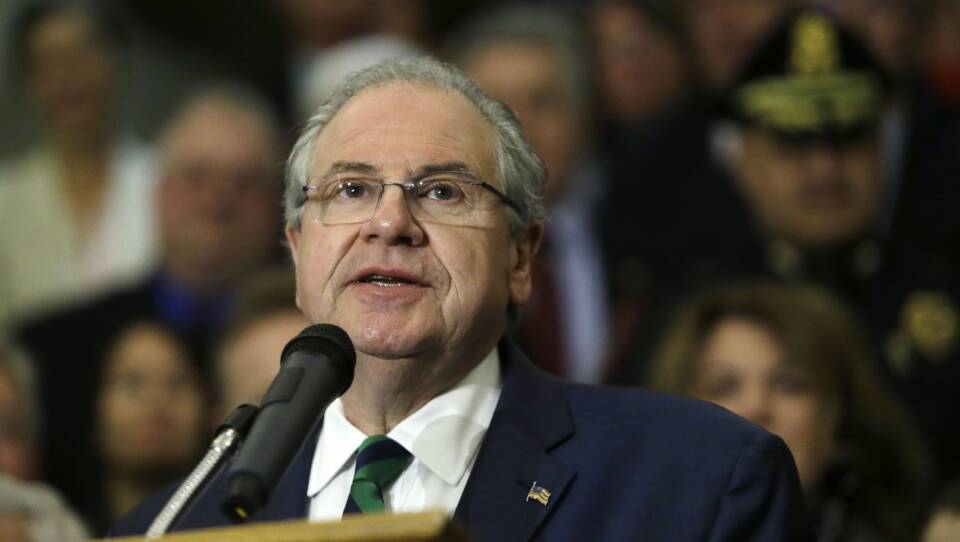The Massachusetts House voted with bipartisan support Wednesday to allocate up to $8 million for family planning providers, a move that uses state dollars to replace federal funding lost under a rule change targeting abortion services.
Members voted 139-14 to authorize state funding through the end of fiscal year 2020 to cover whatever Massachusetts clinics lose under the new Trump administration rule. The bill could go before the Senate as soon as Thursday, and Republican Gov. Charlie Baker has indicated he plans to support it as well.
"Once again, where Washington falls short, we in the Commonwealth are ready and willing to step up and fill the needed gap," Ways and Means Committee Chair Aaron Michlewitz said in brief remarks on the House floor. "We cannot allow people's health care to be put at risk because of the narrow-minded politics of the Trump administration. Today, we are taking the first step to put a stop to this."
Democratic Reps. Russell Holmes, Thomas Petrolati, and Angelo Scaccia voted against the bill, as did Republican Reps. Elizabeth Poirier, Donald Berthiaume, Nicholas Boldyga, William Crocker, Peter Durant, Sheila Harrington, Marc Lombardo, Joseph McKenna, Norman Orrall, Michael Soter, and Alyson Sullivan. Twenty-one Republicans voted in favor of the measure, and seven representatives did not vote.
In February, the Trump administration announced it would no longer direct Title X funding, which supports family planning services for low-income residents, toward any clinic that provides or refers abortions. The rule change faces a legal challenge from 21 states, including Massachusetts, but will go into effect in May if it is not blocked in court.
House Speaker Robert DeLeo said he was "outraged" by the administration's decision.
"Bottom line, we want to be prepared to make sure these facilities are operating and that they're offering health services for women," he told reporters before the vote.
Massachusetts providers received $6.1 million from Title X in 2017, according to the Planned Parenthood League of Massachusetts, although it is unclear exactly how much of that would be affected under the administration's new rule.
Michlewitz told reporters about $1.6 million of the $8 million allocated would be in place through the end of fiscal year 2019 and the remainder would be available for fiscal year 2020. Lawmakers are preparing for a situation in which the state receives no Title X money whatsoever.
About 75,000 Massachusetts residents, a vast majority of whom earn less than $30,000 a year, would be impacted by the cut in funding, according to Michlewitz. Opponents of the rule change, who refer to it as a "domestic gag rule," say the move would limit access to crucial health services.
"We applaud Massachusetts' leadership, but we must be clear: states should not have to protect their residents from their own federal government," said Planned Parenthood League of Massachusetts CEO Jennifer Childs-Roshak in a statement. "All people – no matter what state they live in – deserve access to affordable birth control, lifesaving cancer screenings, and STI testing and treatment. The gag rule is malicious, harmful, and cannot stand."
Chanel Prunier, executive director of the conservative Renew Massachusetts Coalition, criticized the vote, saying in a press release that the measure is "nothing but a giveaway of our tax dollars to the abortion business."
"Abortion businesses like Planned Parenthood shouldn't receive taxpayer funds in the first place — particularly those related to family planning, as abortions are not 'family planning,'" Prunier said.
The administration's rule change would revoke a 2000 regulation requiring Title X-funded programs to provide abortion referrals when requested by patients because, the policy reads, "that referral necessarily treats abortion as a method of family planning." In a January press release, about two months before the final rule was released, federal Department of Health and Human Services Secretary Alex Azar said the administration's goal is to promote "the dignity of human life from conception to natural death."
"At HHS, through our work in healthcare, human services, public health, and biomedical science, we are committed to this effort," he said in the release. "This means not just protecting human life in the administration of our programs, but also respecting the conscience rights of those who participate in HHS-funded programs."




